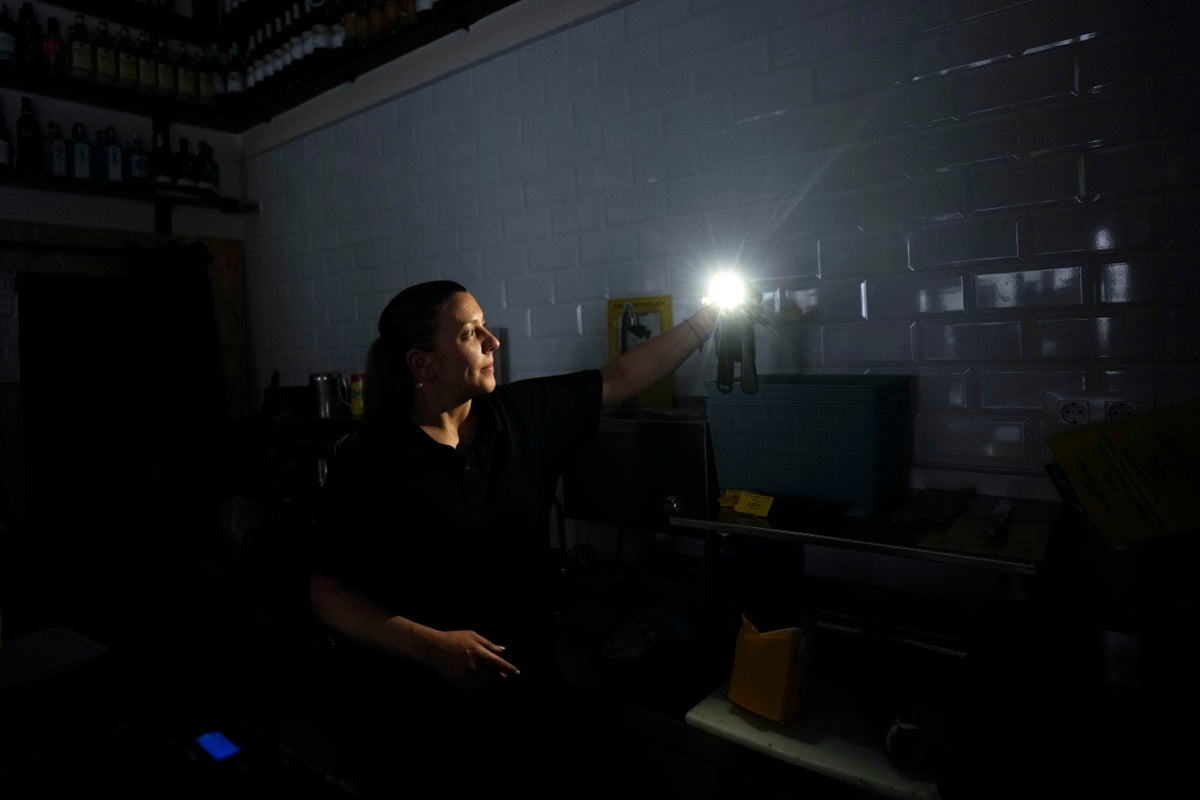ARTICLE AD BOX
Millions across Spain and Portugal were left in the dark on Monday as an unprecedented power outage brought much of the Iberian peninsula to a standstill.
For hours the lights went out, transport links ground to a halt and communication networks faltered, leaving many wondering what had gone wrong.
In the immediate aftermath, explanations were thin on the ground. Conspiracy theories began popping up, including international sabotage, a cyber attack or even renewables being responsible for the outage.
Officials said there was little precedent for this kind of widespread electric failure across all of the Iberian peninsula. "We have never had a complete collapse of the system," said Pedro Sanchez, the prime minister of Spain, talking about how the power grid lost 15 gigawatts, the equivalent of 60 per cent of its national demand, in just five seconds.
Experts say a proper investigation will take time – and that the cause remains uncertain. Spain's grid operator, Red Eléctrica de España (REE), spoke of a "very strong oscillation in the electrical network" that led to the country's disconnection from the wider European power system.
Meanwhile, Portugal's operator, REN (Redes Energéticas Nacionais), initially suggested a "rare atmospheric phenomenon" in Spain, involving extreme temperature variations, could have caused vibrations in high-voltage lines.
But many experts are sceptical of those claims.
“I am not familiar with this term,” Dr Jianzhong Wu, professor of multi-vector energy systems at University of Cardiff, said. “It is not widely used or frequently encountered in power system engineering.
“‘Induced atmospheric vibration’ could mean unusual physical movements of power lines caused by rapid and extreme changes in atmospheric conditions, such as temperature shifts or localised weather phenomena,” he explains.
“These vibrations can alter the electrical properties of transmission lines or trigger protective mechanisms designed to prevent damage, leading to unexpected disconnections. Alternatively, it could refer to unusual changes in electricity demand and generation caused by rapid atmospheric shifts.”
Dr Wu says there isn’t enough information available to make an assessment on the cause.
One of the key aspects of this blackout is how it managed to affect such a large area. Both Spain and Portugal's electricity grids are tightly linked, not just to each other but also to the broader European system. This interconnectedness usually provides resilience, allowing power to be shared across borders.
However, Dr Jianzhong Wu, professor of multi-vector energy systems at University of Cardiff, said it can also mean that "disturbances can spread quickly if a major synchronisation failure occurs.”

“In this case, the disruption appears to have propagated rapidly through the Iberian peninsula.”
Dr David Brayshaw, a professor of climate science and energy meteorology at the University of Reading, explained: "Power systems are networks, connecting local disruptions to wider areas... If something on the network — a generator, a power line, or even a large electricity user — suddenly disappears, it creates a supply-demand imbalance, and the system frequency starts to shift. If that shift becomes too large, other components can trip offline, creating a snowball effect that worsens the imbalance and can trigger a major blackout — sometimes within seconds."
With both Spain and Portugal increasingly relying on renewable energy sources like solar and wind, questions have been raised about their role in the outage. Experts were quick to dismiss this as the primary cause, however.
Daniel Muir, a senior European power analyst at S&P Global, told Politico that "the nature and scale of the outage makes it unlikely that the volume of renewables was the cause."
“There was sufficient conventional generation available, with nuclear, hydro, cogeneration and thermal technologies all on the system prior to the event and ... available to the operator,” he said.
Dr Keith Bell, professor of electronic and electrical engineering at the University of Strathclyde, said:“Events of this scale have happened in many places around the world over the years, in power systems using fossil fuels, nuclear, hydro or variable renewables. It doesn't matter where you are getting the energy from, you've got to get the engineering right in order to ensure resilient supplies of electricity.”
There has also been a lot of speculation asking whether the outages were the work of cyber-saboteurs launching a strike on Europe. However, there is no evidence suggesting that was the case.
European Commission executive vice president Teresa Ribera dismissed that possibility, saying there was “nothing that allows us to say that there is any kind of sabotage or cyberattack”.
While this is a rare event, its not an unlikely one. Experts caution that as the world’s electricity demands increase and power systems change, there needs to be more research into the vulnerabilities of these systems.
"System operators and equipment owners try to ensure that such major events don’t happen and to learn lessons when they do, sharing those lessons internationally once investigations have been completed,” Dr Bell said.









 English (US) ·
English (US) ·